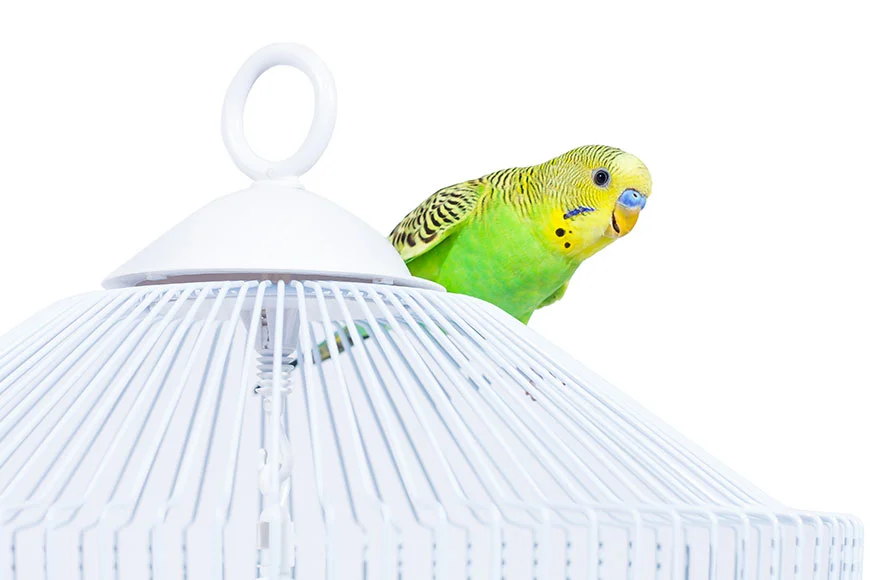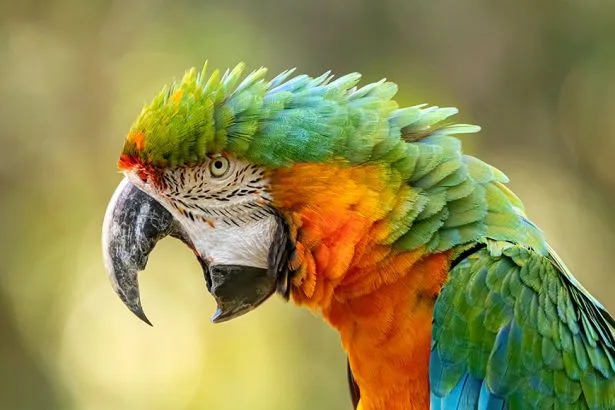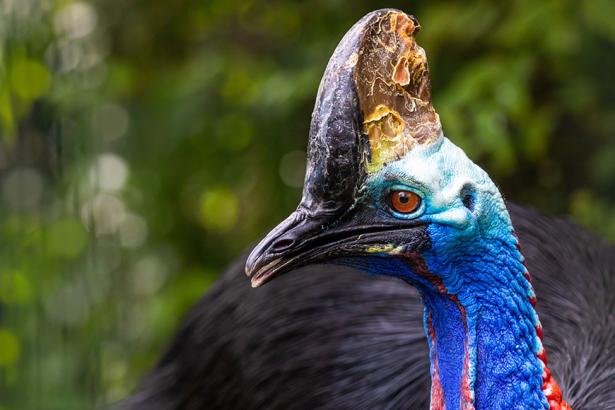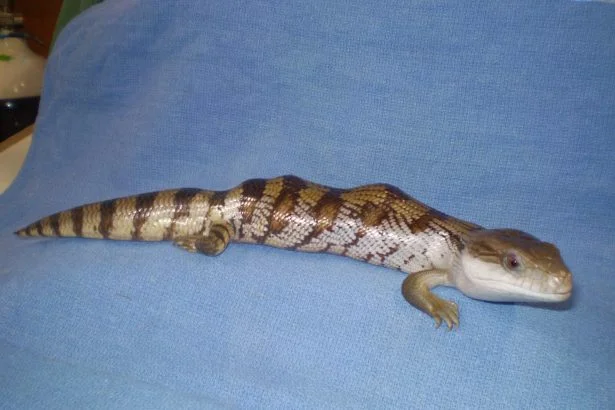Pet birds are a delightful addition to any home, bringing joy and companionship to their owners. It goes without saying that you should strive to create a safe and nurturing environment for your feathered friends. However, it’s crucial to be aware of potential dangers lurking in our homes, including seemingly harmless household items and plants. Many everyday objects can pose significant risks to the well-being of pet birds, jeopardising their health and safety. As a responsible bird owner, it’s crucial to be aware of these household dangers and take the necessary precautions to create a safe environment for your feathered friends. In this article, we will shed light on some commonly found household items and plants that can be hazardous to our avian companions.
Teflon and Non-Stick Cookware
Teflon and other non-stick coatings, commonly found on cookware, can release toxic fumes when heated to high temperatures. These fumes can prove fatal to pet birds, causing respiratory distress and, in severe cases, leading to death. It is crucial to ensure that birds are kept away from the kitchen during cooking, and you should consider replacing non-stick cookware with bird-safe alternatives, such as stainless steel or cast iron.
Cleaning Products
Many household cleaning products, such as bleach, ammonia, and certain detergents, contain toxic chemicals that can be harmful to birds. When birds come into contact with these substances, either through direct contact or inhaling fumes, they can suffer from respiratory problems, skin irritations, or even organ damage. Always keep cleaning products securely stored in bird-inaccessible areas and when using these products, ensure your pet bird is in a well-ventilated area or temporarily relocate them to a different room. Additionally, consider using bird-safe, eco-friendly cleaning products.
Aerosol Sprays and Air Fresheners
Aerosol sprays, including air fresheners, hair sprays, and deodorants, can release harmful particles into the air, posing a significant risk to avian respiratory systems. Birds have highly sensitive respiratory systems, and exposure to aerosolized substances can lead to breathing difficulties, irritation, and other health issues. Use such products in well-ventilated areas, away from your feathered companions, or consider using natural alternatives like essential oils.
Candles and Incense
While the ambiance created by candles and incense may be enjoyable for humans, these items can be hazardous to birds. The smoke and soot produced by burning candles and incense can cause respiratory distress and damage delicate lung tissues. Additionally, birds are naturally curious, and an open flame can pose a fire hazard if they accidentally come into contact with it. Keep these items out of your bird’s reach, and opt for flameless alternatives if you desire a similar atmosphere.
Toxic Plants
Certain houseplants, although beautiful, can be highly toxic to birds if ingested. Some common examples include lilies, azaleas, philodendrons, and poinsettias. Ingesting even small amounts of these plants can result in severe health issues, ranging from digestive problems to organ failure.
Philodendrons and many popular types of lilies contain calcium oxalate crystals, which can cause irritation and swelling in a bird’s mouth and throat if ingested.
Azaleas contain a neurotoxin called grayanotoxin that, when ingested by pet birds, can lead to severe symptoms such as tremors, vomiting, weakness, and even death, making it crucial to keep these plants out of reach or avoid them altogether in bird-friendly homes.
Ensure that any indoor plants are non-toxic to birds, or consider placing them in areas where your feathered friend cannot access them. Bird-safe plants include spider plants, ferns and palms.
Toxic Foods
Avocado: Avocado contains a toxin called persin, which is harmless to humans but can be toxic to many animals, including birds. Persin can cause breathing difficulties, fluid accumulation in the chest, and heart failure in birds.
Chocolate: Chocolate contains theobromine and caffeine, which are toxic to birds. These substances can cause abnormal heart rhythm, tremors, seizures, and even death if ingested in large amounts.
Onions and Garlic: Onions and garlic contain compounds that can cause damage to a bird’s red blood cells, leading to anaemia. Ingesting these foods can result in weakness, lethargy, and other symptoms associated with anaemia.
Alcohol: Alcohol affects birds in a similar way it affects humans. Even small amounts can cause intoxication, central nervous system depression, lack of coordination, and potential organ damage.
Salty Foods: Birds have a low tolerance for sodium, and consuming excessive amounts of salt can lead to dehydration, kidney problems, and electrolyte imbalances. Avoid giving birds foods that are high in salt, such as chips, pretzels, and processed snacks.
Caffeine: Beverages like coffee, tea, energy drinks, and sodas contain caffeine, which can be toxic to birds. Caffeine stimulates the bird’s central nervous system, causing restlessness, increased heart rate, hyperactivity, tremors, and potential cardiac problems.
Fruit Pits and Seeds: Many fruits, such as apples, cherries, peaches, and apricots, contain pits or seeds that can be toxic to birds. These pits may contain cyanide, which can cause poisoning and lead to respiratory distress and organ failure.
Rhubarb: Rhubarb leaves and stems contain oxalates, which can be toxic to birds. Ingesting rhubarb can cause kidney damage, digestive issues, and weakened bones.
Mushrooms: Wild mushrooms can be extremely dangerous for birds as they often contain toxins that can lead to liver damage, seizures, gastrointestinal issues, and even death. It is best to avoid feeding birds any type of mushroom unless it has been specifically recommended by a veterinarian.
High-Fat Foods: While not necessarily toxic, foods high in fat can cause health problems for birds. Excessive consumption of fatty foods like fried items, chips, butter, margarine and even sunflower seeds can lead to obesity, liver disease, and other complications.
Creating a safe environment for your pet bird is essential for their health and happiness. By being aware of the dangers posed by common household items and plants, you can take the necessary precautions to protect your feathered friend. Always research any new items or plants you bring into your home and consult with your veterinarian for additional guidance on maintaining a bird-friendly environment. By doing so, you can create a safer and healthier environment for your beloved avian companions, allowing them to thrive and flourish in your care.
FAQs
Many household cleaning products contain toxic chemicals that can be harmful to birds. Bleach, ammonia, and certain detergents are examples of cleaning products that can cause respiratory problems, skin irritations, and organ damage in birds. Keep these products securely stored in bird-inaccessible areas and ensure good ventilation when using them. Using bird-safe, eco-friendly cleaning products is also a recommended option.
Aerosol sprays, including air fresheners, hair sprays, and deodorants, can release harmful particles into the air that can pose a significant risk to a bird’s respiratory system. Birds have sensitive respiratory systems, and exposure to these substances can lead to breathing difficulties and irritation. It’s best to use such products in well-ventilated areas away from your feathered companions or consider using natural alternatives like essential oils.
Yes, burning candles and incense can be hazardous to birds. The smoke and soot produced by burning candles and incense can cause respiratory distress and damage their delicate lung tissues. Additionally, open flames can pose a fire hazard if birds accidentally come into contact with them. Keep these items out of your bird’s reach and consider using flameless alternatives for creating a similar ambiance.
Certain houseplants, such as lilies, azaleas, philodendrons, and poinsettias, can be highly toxic to birds if ingested. Ingesting even small amounts of these plants can result in severe health issues, ranging from digestive problems to organ failure. It is crucial to ensure that indoor plants are non-toxic to birds, or alternatively, keep them in areas that are inaccessible to your feathered friend. Bird-safe plants include spider plants, ferns, and palms.
There are several foods that are toxic to birds and should be avoided. Some examples include avocado, chocolate, onions, garlic, alcohol, salty foods, caffeine, fruit pits and seeds, rhubarb, mushrooms, and high-fat foods. These foods can cause a range of problems from respiratory distress and organ failure to gastrointestinal issues and obesity. It’s important to provide a well-balanced diet, so do a search for “vets that see exotic pets near me” and arrange a consultation with a veterinarian to ensure your bird’s nutritional needs are met.






1 Comment
Comments are closed.